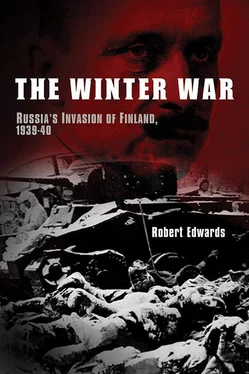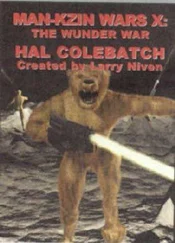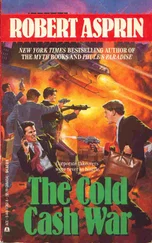There was at least one Swedish politician who felt differently: Rickard Sandler, the foreign minister. Sandler spent much of his time attempting to produce a diplomatic solution whereby Scandinavian interests could be pooled, with a resulting neutral bloc, which would include Sweden, Denmark, Norway and Finland. The Åland question would be a neat way of producing a fait accompli of common ground, for his fellow cabinet ministers were less than unanimous in supporting this objective. As a result, he trod softly, but needless to say, he was a popular man in Finland, not the least reason being that he had bothered to learn the language.
Swedo-Finnish military cooperation represented a rich vein of shared history in the culture of both nations, the common link being Gustavus II, Adolphus, whose army during the Thirty Years’ War, referred to in Finnish history as the ‘Years of the Great Wrath’, descended upon Pomerania and contained within it a significant leavening of ‘squat and swarthy Lapps’ as well as ‘lean, colourless’ Finns. [14] C. V. Wedgwood, The Thirty Years War I Jonathan Cape, 1944) p. 275.
The martial aggression of these soldiers had been remarked upon by all who had seen it, for they had represented the backbone of Gustavus II’s remarkable cavalry arm. [15] The infantry were more often Scottish.
By and large, Finland had been a contented place under Gustavus and his Vaasa successors; there were definite advantages in being a possession of Sweden as opposed to any other alternatives, which is perhaps why the pressure for independence, a Finnish nation-state, did not emerge until after the country had been handed over to Alexander I of Russia at the Treaty of Tilsit in 1807. Within two years Finland, nominally an autonomous Grand Duchy, was overrun by Russian troops, as the Tsar realized that if he wanted this territory he would have to fight for it.
The telephone call received from the Soviet legation by the Finnish foreign minister Rudolf Holsti in April 1938 was, to say the least, unorthodox, but probably more welcome than a call from the minister himself, the obtuse and plodding Party hack Vladimir Deravianski, who was something of a cartoon Bolshevik. The caller was one Boris Yartsev, a lowly second secretary at the legation, but by comparison he was, or appeared to be, a breath of fresh air. [16] Yartsev was a work name; his real name was Rybkin.
This affable young sprig apologized for the breach of protocol, but requested an urgent consultation, which he was granted with Holsti’s usual grave courtesy, for 14 April. Holsti knew perfectly well that Yartsev was no junior diplomatist; both he and his wife, ‘a fine-looking woman past her first youth’, as Väinö Tanner rather ungallantly put it later, were an observable feature of the social scene of the Finnish capital. It was assumed, rightly, that they were both officials of some rather higher organ of the State than that represented by Deravianski, (probably the NKVD), if only because they seemed to enjoy a freedom of movement not actually enjoyed by the Soviet minister himself, who constantly dreading recall, tended to stay in or near the legation. Yartsev, when he appeared on 14 April, bore on the face of it startling news. He had just returned from Moscow, where he had received instructions to investigate the possibilities of ‘improving’ Soviet-Finnish relations which were, he conceded, de minimis.
Two days before, an event had taken place, which, in the context of the recent events in Austria, might have been considered tactless, if only in retrospect. It had been the twentieth anniversary of the liberation of Helsinki by Mannerheim’s yeoman army, supported by the German Expeditionary Force under General Count Rüdiger von der Golz. Mannerheim and von der Golz, both men slightly creaking by now, had attended the celebrations, while a Finnish Army band (within earshot of the Soviet legation) had thumped out, with some enthusiasm, Wilhelmine marching songs in honour of the host of German veterans also present. The fact that no Finnish cabinet minister was present (in an official capacity, at least) may or may not have been appreciated.
In terms of the reasoning behind the Soviet initiative, Yartsev was unusually open, confirmation (not that much was needed) that he was sparring far above his diplomatic weight. As recent events in Austria proved, Germany was clearly on the move and probably poised to attack the Soviet Union. It was likely, stated Yartsev, that Germany would attempt to use Finland as a base of operations for an offensive towards Leningrad, and, should that prove to be the case, Moscow needed to know what Finnish attitudes would be. He did not add, nor did he need to, that the echoes of ‘Alte Kameraden’ had barely died away in the streets outside. Should it transpire that German troops appeared on Finnish soil, Yartsev continued, then the Red Army would have no hesitation in advancing to meet them, but if Finland chose to resist the blandishments of Berlin, then the Soviet Union would offer’… all possible military and economic assistance and undertake to withdraw its troops as soon as the war was over’. [17] Jakobson, The Diplomacy of The Winter War, p. 8.
If this was not sinister enough, Yartsev added that without Soviet assistance, Finland would not be in a position to resist Germany; it was well known in Moscow that any attempt to deter Germany would lead to a Fascist coup in Finland, which would welcome Germany with open arms. Unsurprisingly, this was news to Holsti. This mild Russian obsession as to Finnish intentions vis-à-vis Germany was not a recent one, and dated back to the civil war. What was not perhaps perceived, however, was that there was a distinct separation in public opinion. If Russia failed to grasp this, then Germany did not. The German minister in Helsinki, Wipert von Blücher, penned a long memorandum on the subject a few months after Yartsev’s visit:
In a war Finland can only be a loser. She is today a ‘have’ Nation, which is interested in the preservation of the status quo. Public opinion in the event of war will in large part instinctively turn against the power which is thought to be guilty of aggression. In deciding who is guilty, public opinion will be under the influence of Stockholm and London. As long as the belligerents respect her integrity, Finland will do her utmost to stay outside the conflict. The sympathies of the military and right-wing circles will be on the side of Germany. But for the left-wing circles who are in power, the cause of the war, the attitude of the Western democracies and other factors will be more important than Soviet participation in the war. [18] Jakobson, ibid. , p. 26.
As an exposition of informed opinion, Blücher’s memorandum is quite masterful; it went a long way toward forming opinion in the German Foreign Ministry, under both Konstantin von Neurath and Joachim Ribbentrop. Von Neurath had been scathing in his initial assessment of Holsti, as ‘mediocre, timid, and perhaps scheming’
His breakfast ruined, Holsti attempted to allay his visitor’s concerns. He explained that the government was well supported by a healthy majority in Parliament, that such relations with Germany as Yartsev feared were incompatible with Finland’s policy of Scandinavian neutrality, and that the international situation, although serious, was surely not that grave.
Yartsev changed gear. The Soviet government needed, nay, demanded, ‘guarantees’ that Helsinki would not side with Berlin in a war on Russia, but crucially he refused to elaborate on what the nature of those guarantees might be. He had, for the moment, shot his diplomatic bolt and reached his level of competence. All other issues would be a matter of negotiation between the two governments. He was able to offer some concessions, though; the Soviet Union was in a position to buy ‘limitless amounts’ of Finnish raw materials and agricultural products. [19] To be precise, Finnish exports to the USSR comprised 0.6 per cent of total trade and imports 1.9 per cent of the same, by markka volume. Given the huge mutual border, observers have noted that in economic terms this amounted to virtual blockade.
Читать дальше











